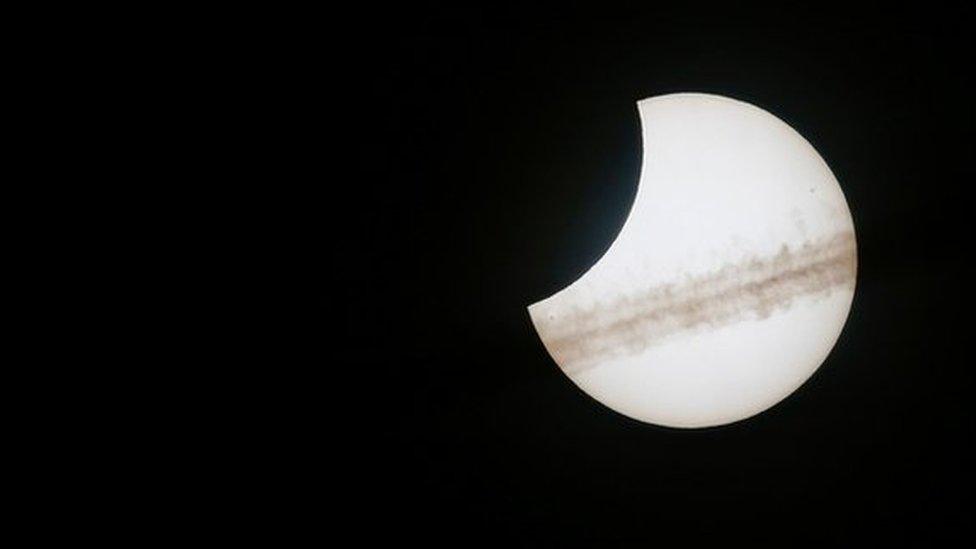Buck Moon: July supermoon appears brighter than usual in the sky
- Published
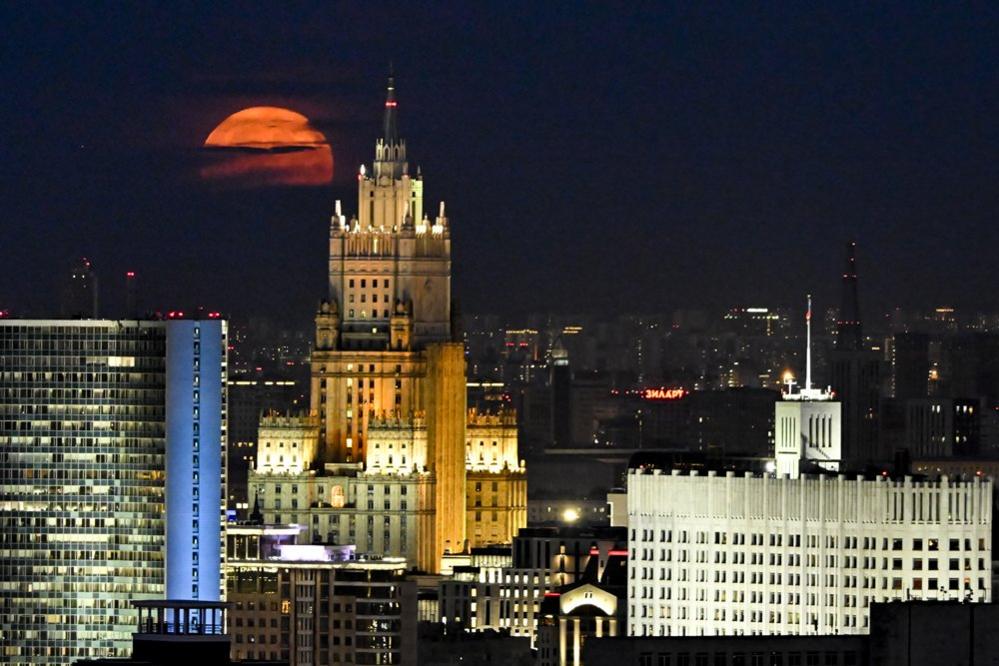
The moon illuminated the sky as it rose over the Russian Foreign Ministry building in Moscow, Russia
The Moon has left people gazing up at the sky after appearing brighter and larger than usual on Monday evening.
July's supermoon is appearing full for up to three days, according to Nasa.
Known as a Buck Moon, it is closer than normal in its orbit around the Earth.
This is because the Moon's orbit is not a perfect circle due to the Earth's gravitational pull; instead it is elliptical, like an elongated circle or oval.
Because of this, there are times in the Moon's 27.32-day orbit when it is closer to the Earth and other times when it is further away.
A supermoon happens when the Moon is at the closest point to Earth in its orbit and also in its full Moon phase.
The full Moon in July was given the Native American name of Buck Moon because the antlers of male deer are in full growth mode in July, according to the Royal Observatory. Bucks shed and regrow their antlers.
The Moon reached peak illumination at 12:39 BST (07:39 Eastern Time) on Monday, according to the Old Farmer's Almanac.
The Almanac, which has published astronomical data for centuries, said the Buck Moon would orbit closer to the Earth than full Moons we have already had this year.
August's full Moon will be the only supermoon closer to the Earth this year, the publication said.
Here are some pictures of the Buck Moon from around the world on Sunday and Monday:
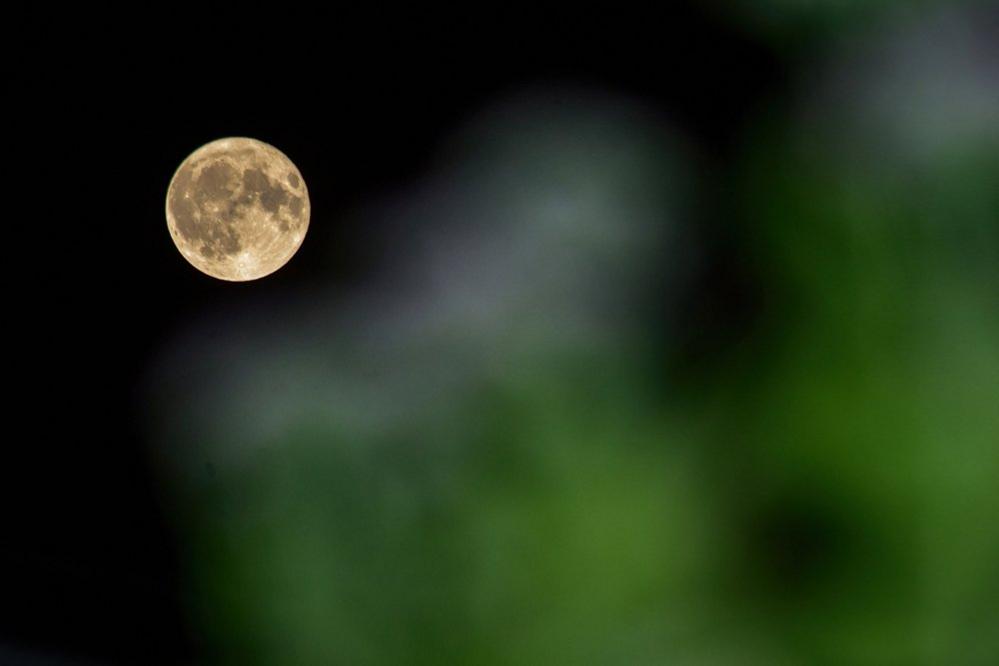
The moon was seen clearly in Srinagar, Indian-administered Kashmir on Monday
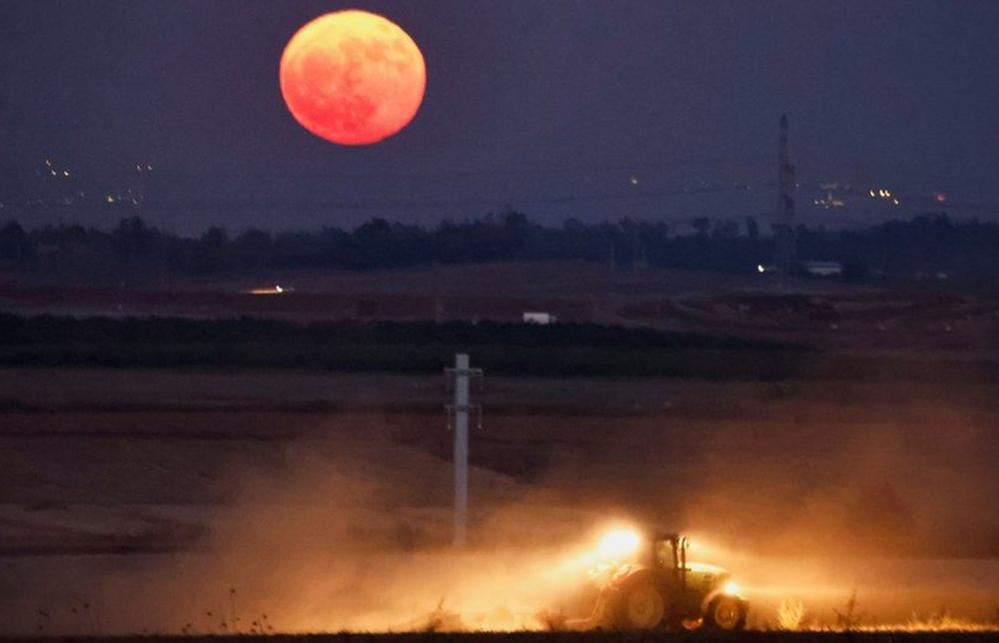
The supermoon provided a captivating backdrop while a tractor ploughed a field near the city of Ashkelon, in southern Israel, on Monday
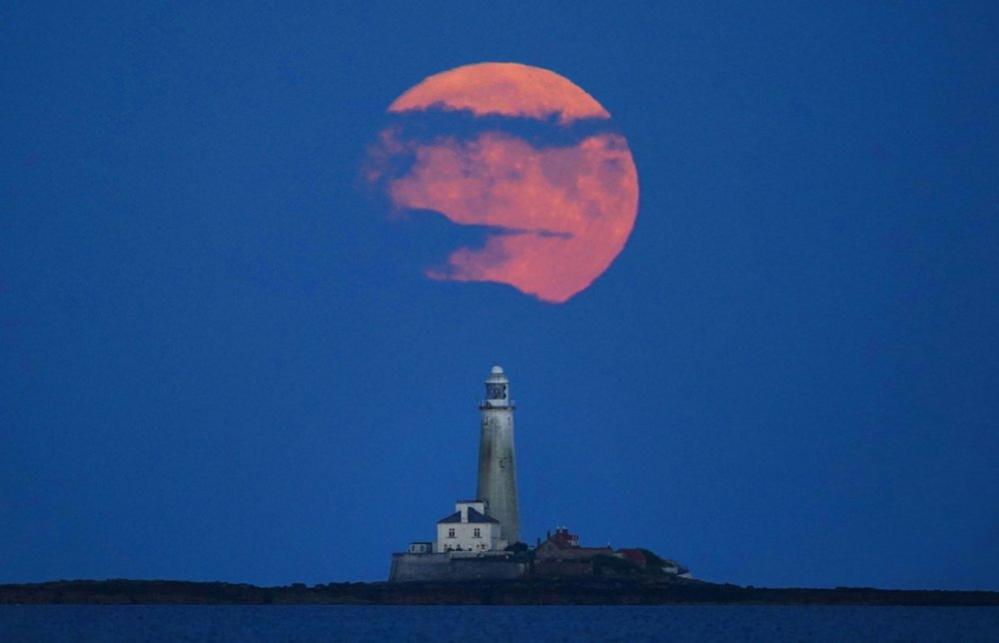
The Buck Moon lit up the blue sky as it rose over St Mary's Lighthouse in Whitley Bay, Tyne and Wear on Sunday
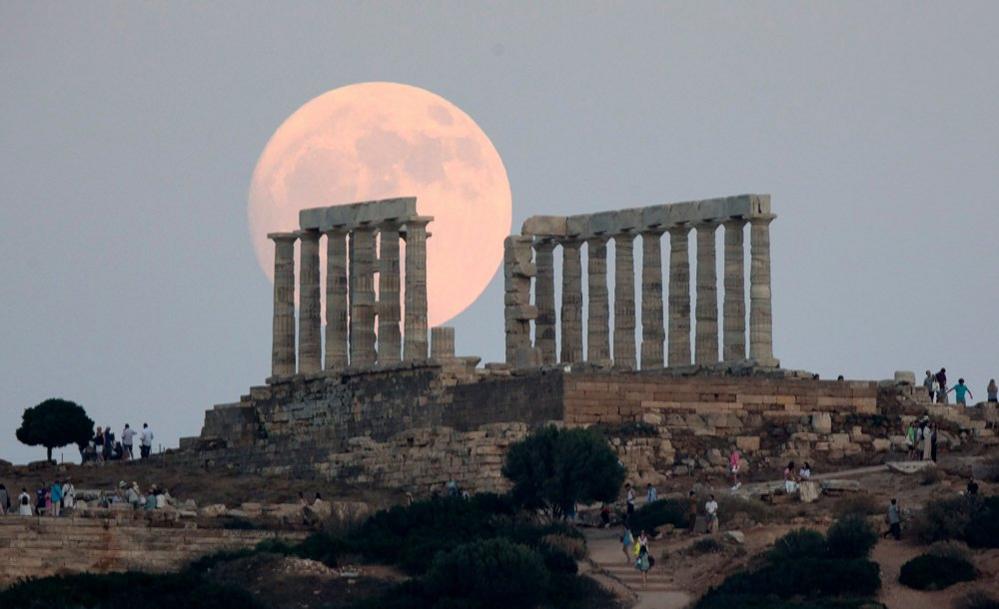
The full moon rose above the Ancient Temple of Poseidon at Cape Sounion, in Sounion, Greece on Sunday
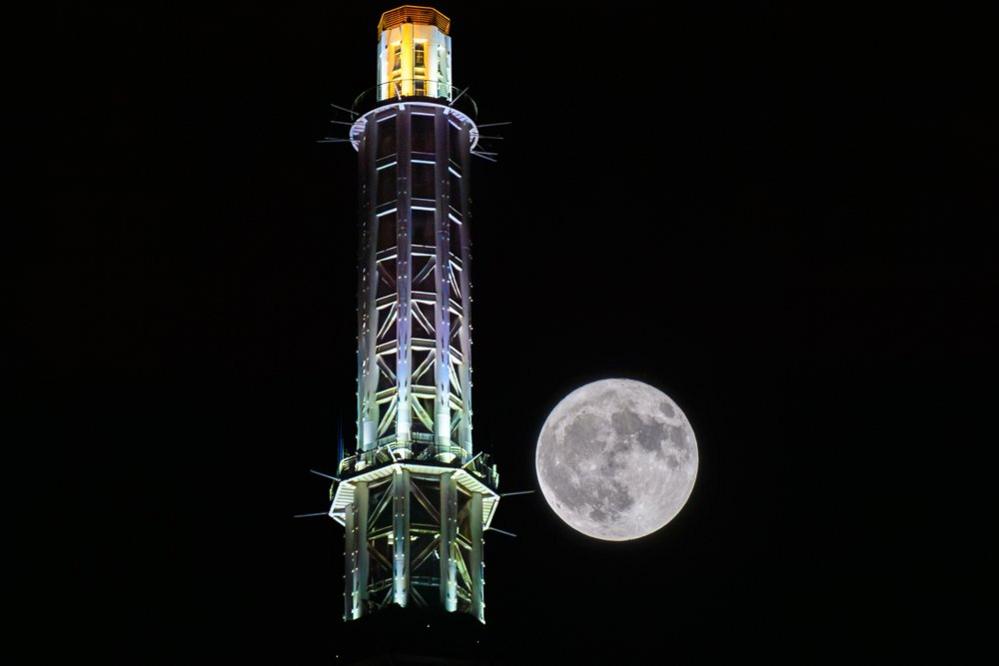
The moon rose behind the Canton Tower in Guangzhou, China on Monday
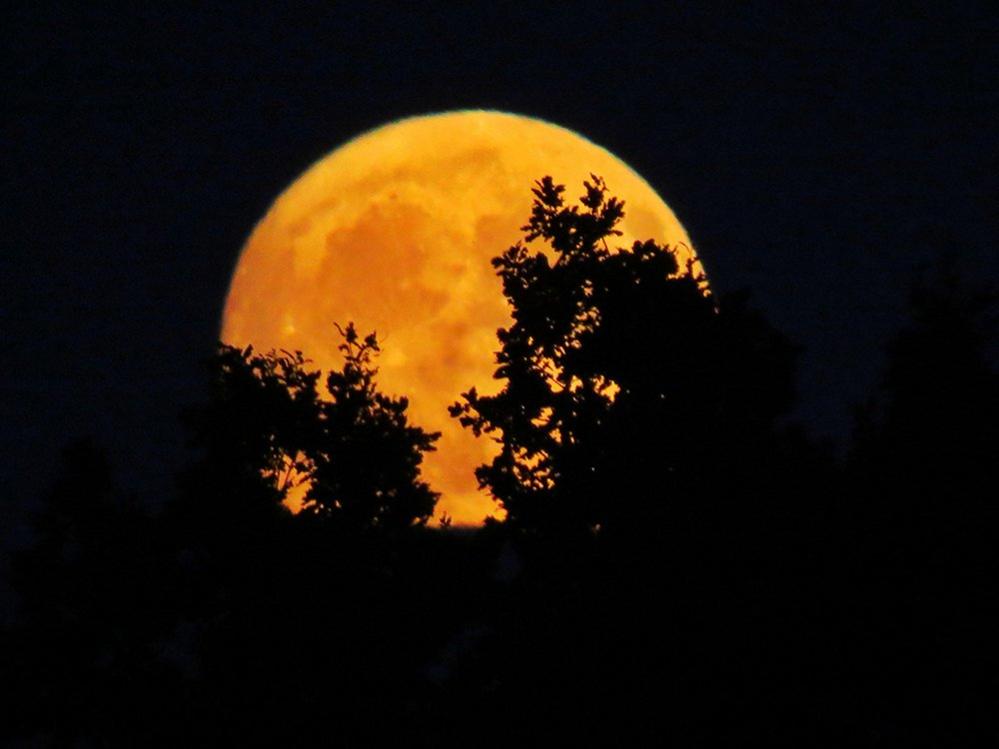
The dark sky in Stockingford, Warwickshire, was illuminated by the orange tones of the Buck Moon on Sunday

A full moon sets behind the Blue Mosque and the Hagia Sophia Grand Mosque, in Istanbul, Turkey on Monday
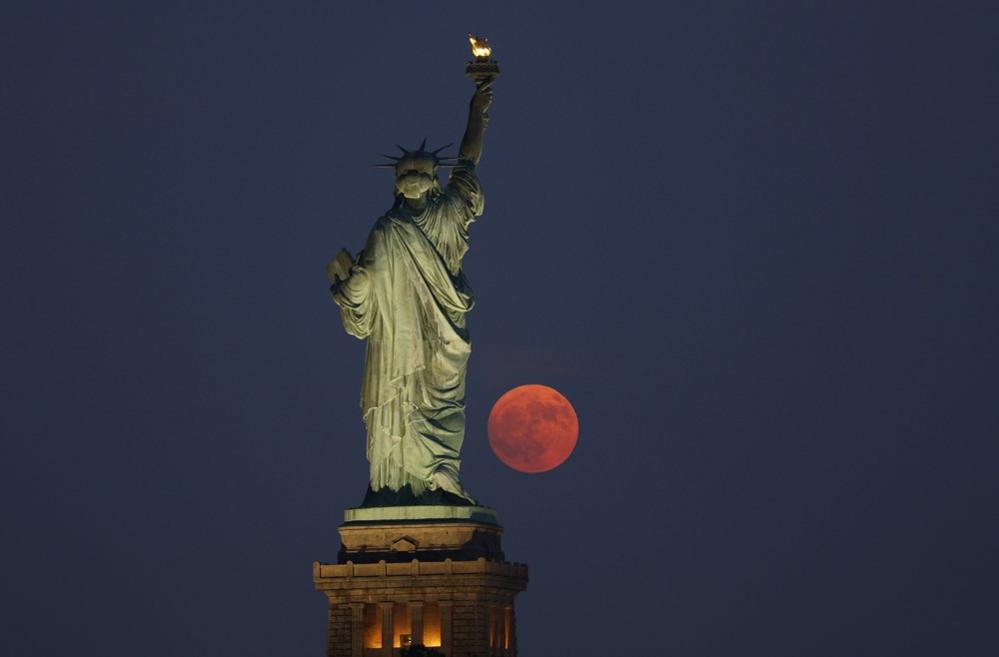
New York City's iconic Statue of Liberty shared the skyline with the Buck Moon on Sunday
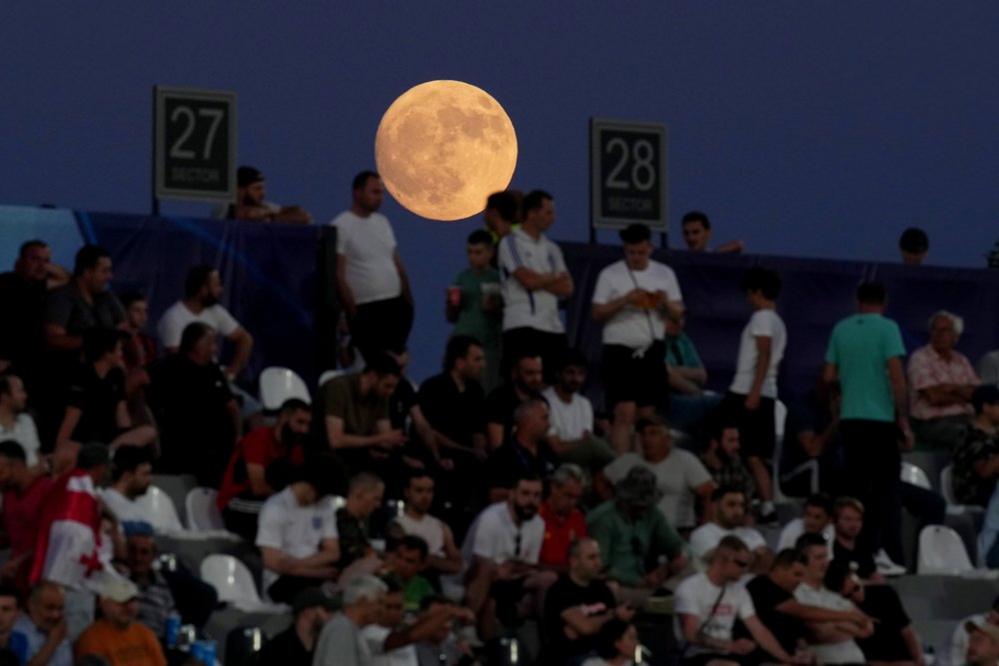
Spectators watching a sports game do not appear to notice the full moon behind them in Kutaisi, Georgia on Sunday
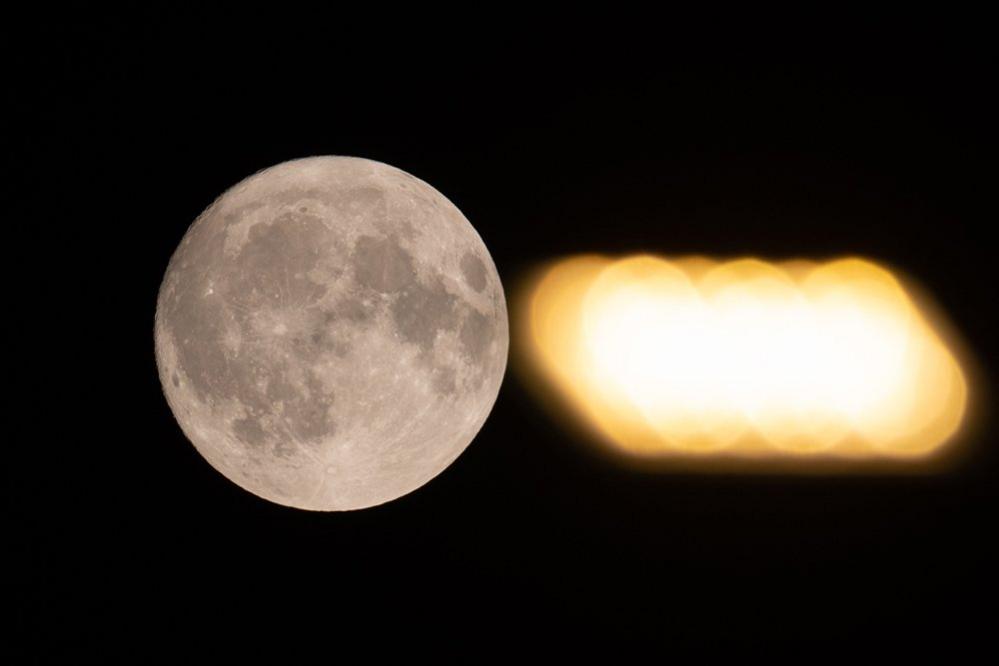
The supermoon was spotted next to a street lamp light in L'Aquila, Italy on Sunday
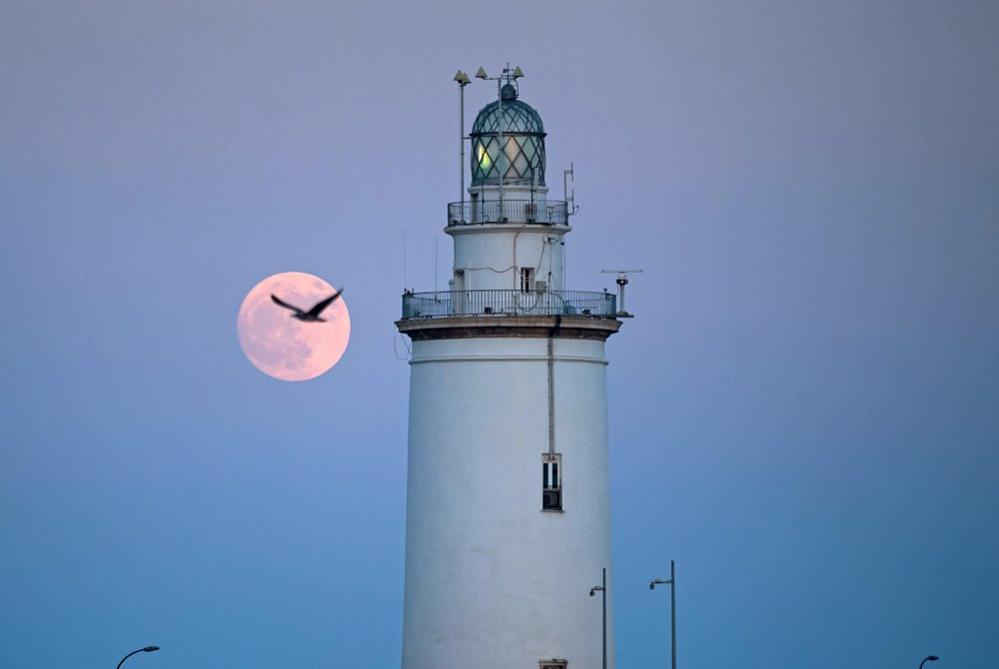
A bird flies past the Buck Moon as it rises in the sky over a lighthouse at the port of Malaga, Spain
All images subject to copyright

Sign up for our morning newsletter and get BBC News in your inbox.

Related topics
- Published19 May 2023
- Published15 July 2022
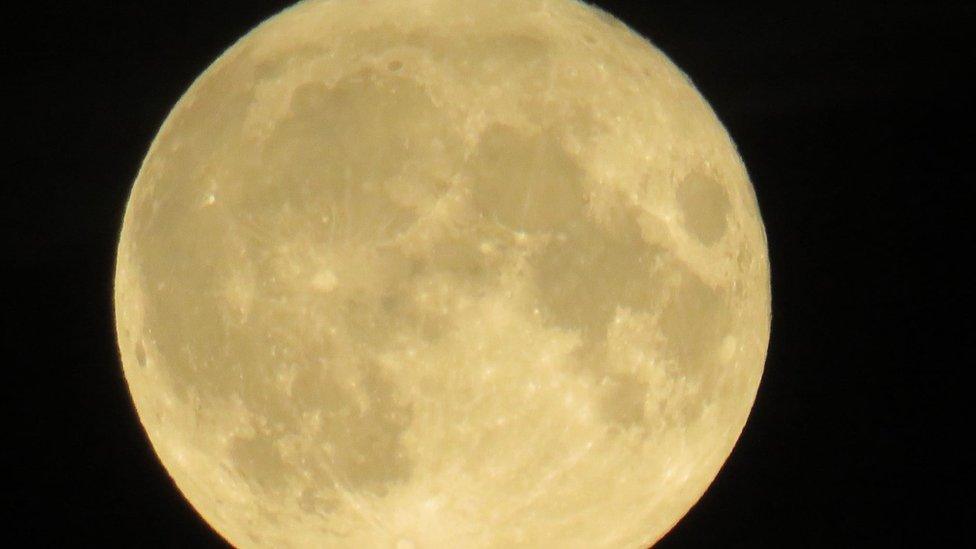
- Published24 February 2023

- Published8 November 2022
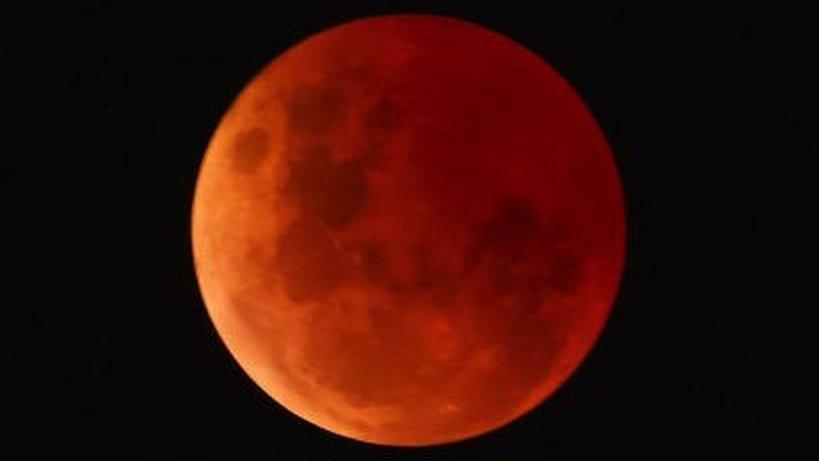
- Published25 October 2022
